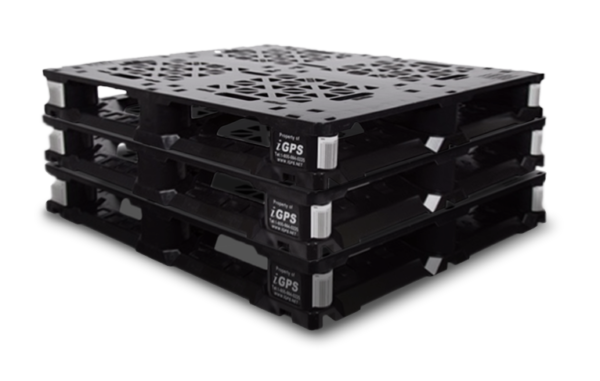Kroger Pallet Requirements
Kroger is the second-largest brick-and-mortar retailer in the U.S. The nationwide chain is a favorite of consumers, known for its low prices and wide variety of products. Kroger has 2757 stores across the country, making this retailer an important partner for any vendor. Creating and maintaining a strong relationship with this chain means understanding and following Kroger’s pallet requirements.

General Kroger Pallet Requirements
Kroger always seeks to improve the customer experience. This requires focusing both on displays on their retail floor and on in-bound palletized shipments. A summary of Kroger’s main pallet criteria can be found below but we encourage all vendors to confirm this information directly with Kroger to ensure it includes the latest updates.
- All palletized loads should be shipped on 48 by 40-inch four-way-entry pallets.
- Pooled block pallets such as CHEP, iGPS, or PECO, or CBA Grade A pallets are accepted
- Pallets with visible defects will be rejected. This includes pallets with missing or broken top and bottom boards, splinters more than three inches long, cracks larger than ⅛-inch wide and ten inches long, patches and obvious repairs or nail heads or hardware points that are more than ⅛-inch above the surface.
- International pallets should have Plant Protection Convention markings on at least two opposite sides of all pallets.
Pallet inspections occur on delivery for any signs of contamination such as odor, dampness, spills, or product damage. Any of these could result in a rejected load.

Using Plastic Pallets to Reduce Load Rejection at Kroger
Many of the standard reasons for pallet rejection at any retailer, including Kroger, stem from problems inherent in wood pallets. By switching to a plastic pallet pooling model, it’s possible to eliminate many of these common issues from the start. Here are just a few reasons why manufacturers and retailers are increasingly switching to plastic shipping pallets:
| Unibody Construction | Broken or cracked boards will cause a rejected load at Kroger. However, plastic pallets have no “boards” and don’t use hardware like nails or screws that might stick out and damage products or cause employee injuries. |
| Poreless Design | Plastic, unlike wood, doesn’t have pores. As a result, plastic pallets are easy to keep clean and dry. They won’t absorb odors, spills, or contaminants that would result in load rejection. |
| ISPM-15 Exempt | As plastic pallets don’t host pests that could cause ecological problems, they are exempt from toxic chemical or heat treatment requirements under the International Standards for Phytosanitary Measures (ISPM) as adopted by the International Plant Protection Convention. |
| Reduced Debris | A common complaint in the warehouse concerns the debris that wood pallets leave behind. Small particles of debris can cause slips and falls, while large splinters could injure employees and damage products and packaging. Plastic pallets do not shed debris, leading to safer and cleaner warehouses and backrooms for retailers. |
| RFID Enabled | Plastic pallets are ideal for use with RFID technology. RFID-enabled plastic shipping pallets make it easier for supply chain managers to track and monitor pallets as they move from the dock to the retail floor. While Kroger doesn’t require pallets be RFID-enabled, RFID tracking at the pallet level is increasingly feasible and beneficial for food manufacturers and suppliers looking to save on costs and stay compliant with FDA food safety regulations. |
Switching to pooled plastic pallets makes it much easier for vendors to meet and even exceed Kroger’s guidelines on pallets. Plastic platforms are lighter than wood, which reduces transportation costs, and they’re easier to clean, which minimizes the labor involved in pallet management. With their streamlined design, unibody construction, and long useful life, plastic pallets are the perfect solution for meeting Kroger’s pallet requirements or those of almost any retailer.